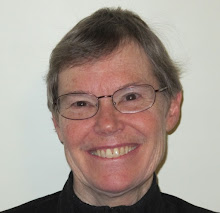Reflections on Growing Up White in Danvers
This spring my daughter urged me to read Debby Irving's 2014 book, Waking Up White and Finding Myself in the Story of Race. I borrowed a copy from a library, and have just finished reading it. I'm now inclined to purchase a copy or two to hand to white friends. This is an important book, well-written and well worth sharing.
Debby Irving reveals, humbly and gently, her personal story of awakening to realities that for years had alluded her. Puzzles and frustrations in her adult life, involving teaching in multicultural settings, are seen in new light as she learns more about the perspectives of others, and re-examines her own assumptions and habits.
For me, the book rang many bells. It was both a "page-turner" – as I eagerly read forward, following her engaging story – and a thought-provoking book, causing me to re-read sections, reflect on my similar experiences, and occasionally grab my journal to write pages of reactions and reflections.
Danvers, of course, came instantly to mind. Like Debby, I thought I grew up in a "normal" family in a "normal" town. It happened to be all-white, but that wasn't thought of or commented on in any way; it was just normal. The first section of Debby's book is titled "Childhood in White" – entirely recognizable by those of us who grew up in Danvers, Massachusetts, in the 1940's and 1950's. She could have been writing my memoir. Debby's descriptions of her New England upbringing, family values, and habits ring true in many ways. Details differ (her parents were more affluent and well-connected), but in essence we were raised the same way.
Like Debby, I was innocent (ignorant) and inclined to believe that the world was a nice place, and that hard work would lead to happy outcomes. For our families, that was mostly true. We had no idea then about the unfair and discriminatory policies in America that had led to unequal treatment of different people, and that led to all-white enclaves like Danvers and Winchester, where Debby grew up.
I remember the total shock I felt when my mother wrote to me about a lawsuit filed by a young black couple who were attempting to buy a home in a new housing development in Danvers, somewhere near the high school I'd attended. Discrimination against a black family? In Danvers? Could that really be happening? News of that case shattered my long-held belief that Danvers just happened to be white. The couple won their case, but chose not to settle in Danvers. My mother was keenly disappointed, but understood why they might wish to avoid Danvers after the controversy.
I was raised to believe that ALL people were equal. Not much was said about race, but illustrations in a favorite children's book influenced me greatly. I loved looking at the different faces. I saw multiculturalism in action, long before knew that word or idea. My parents were accepting of people from different ethnicities and cultures. They hosted international students.
One day my mother was proactive in resolving a potentially awkward situation that she suspected involved racial discrimination against an African guest. She wanted the guest to accompany my sister to school and observe a full day in an American high school. Permission for the school visit was granted, but the principal insisted that my mother drive the guest to and from the school. Why couldn't he simply ride the bus with Jean? Not possible, according to the principal. My mother resisted the unnecessary extra driving, which would cut into her working hours. The principal, when pushed, stated that HE would drive the visitor home, if necessary. My mother did the morning drive, but called in the afternoon to say that she'd be unable to leave work in time. The principal, now needing to interrupt his own busy schedule, decided that perhaps the bus ride made sense, after all. My sister and our guest traveled home together on the school bus. My mother was delighted by that outcome, which is exactly what she had hoped, and guessed, would happen.
Last night, after I read the final chapter of Waking Up White, I lingered over the notes at the end, and the Acknowledgements, impressed by the large teams of people Debby thanked for assisting her in the work that led to this small, self-published book. For more information, see http://www.debbyirving.com/the-book/
Each chapter is short (often only 3-4 pages) and to the point, revealing one new step or puzzle along her journey. I was intrigued by the way she figured things out and began to apply new understandings in her life, in some cases repairing old hurts and improving relationship with others.
There is optimism in this book – hope that by listening to others, and being open to learn from others, we can improve communication and relationships in our workplaces and communities. But first, those of us who are "white" need to acknowledge aspects of our "white culture" that get in the way.
